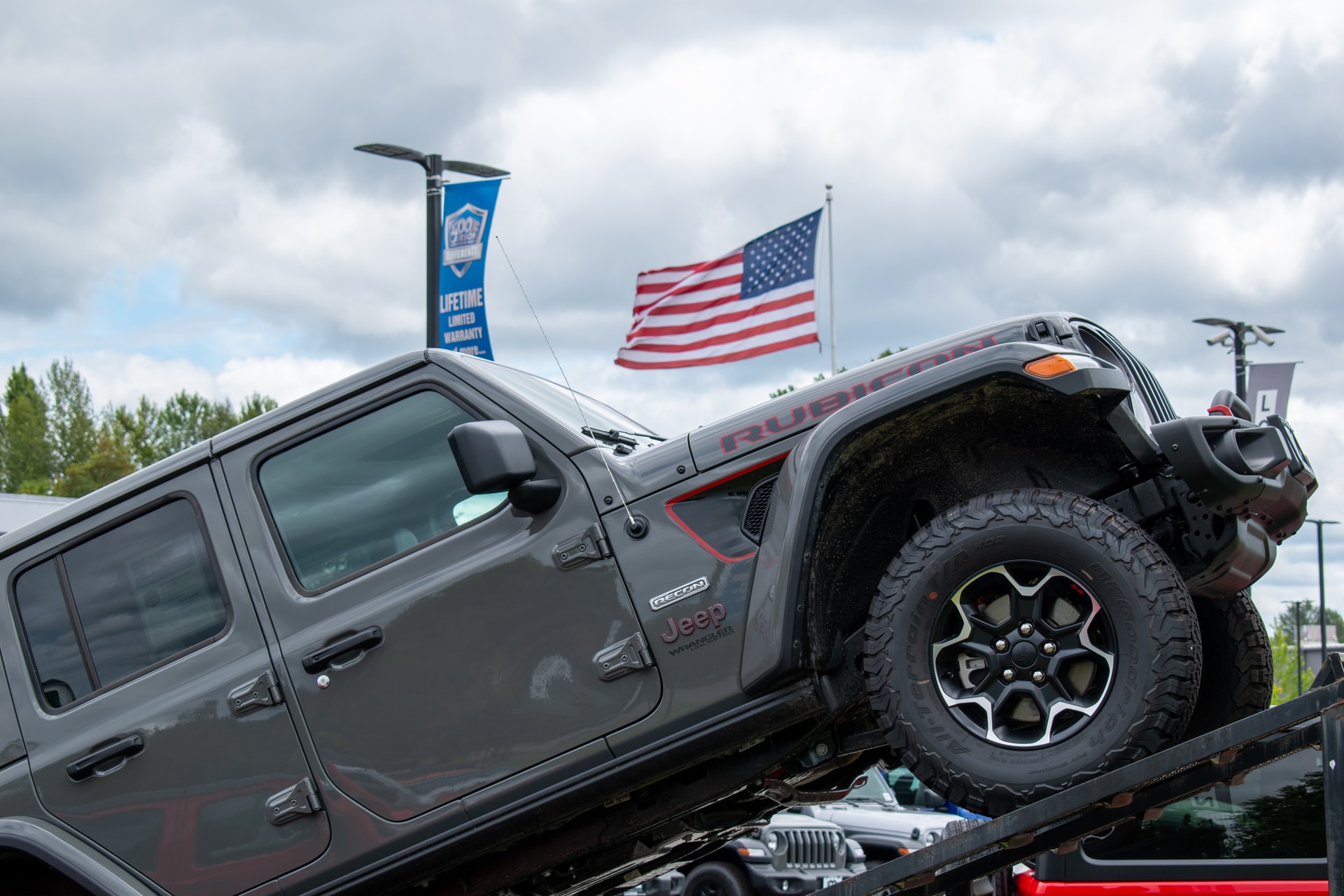You can expect an average Jeep Wrangler weight to be about 4,210 pounds (1,910 kg).
When looking at the specs for different jeeps, the weight will be typically listed as the curb weight (or kerb weight in the UK). This stands for the weight of a vehicle without occupants or baggage.
Generally, the lighter the jeep, the better the fuel economy. This does vary depending on the jeep and its engine. However, the more weight you add, the heavier it will be and the more strain you place on the engine, resulting in a lower mpg. According to the EPA, for every 100 lbs (45 kg), you can expect to reduce gas mileage by about 1%.
For pulling a jeep, it’s recommended to use a vehicle that can tow at least 5,000 pounds for the lightest jeeps. This would account for the additional weight of passengers and cargo. The average F-150 truck can handle a towing capacity of 5,000 to 8,000 pounds depending on your model.
Make sure to check your vehicle’s towing capacity. This can be found in your owner’s manual or the manufacturer’s website as your gross vehicle weight rating (GVWR).
4 Example Jeep Wrangler Weights
The following chart features example Jeep Wrangler weights of specific models ranging from the lightest to the heaviest used on the road. Additional details can be found on the manufacturer’s website. Each generation has led to larger vehicles and heavier curb weights. Here’s the Jeep Wrangler weight chart:
| Jeep Wrangler Model | Estimated Curb Weight |
| Jeep Wrangler YJ (1987-1995) | 2,855–3,241 lb (1,295–1,470 kg) |
| Jeep Wrangler TJ (1997-2006) | 3,092–3,857 lb (1,403–1,750 kg) |
| Jeep Wrangler JK (2007-2018) | 3,760–4,340 lb (1,706–1,969 kg) |
| Jeep Wrangler JL (2018-present) | 3,970 to 4,449 lbs (1,800–2,018 kg) |
Source: Wikipedia
Additional Weight and Things to Consider
The additional weight you will encounter with a Jeep Wrangler will come from a few areas. Those areas being seats, add-ons, lift kits, additional storage, and fuel or propane gas (wet weight). This creates an additional weight to consider when towing and traveling with a jeep.
If you plan on towing your jeep with an RV, you’ll also need to learn how to flat-tow a jeep with an RV. This includes knowing your motorhome’s towing capacity as well as your Jeep Wrangler weight when it’s fully loaded.
Make sure to refer to your vehicle’s owner’s manual and read the section on payload capacity. It’s always safer to leave some extra wiggle room to not damage your engine.
To Conclude
Jeep Wranglers can provide a great mode of transport out on the road, whether that’s for navigating rough terrain or taking it out to drive in style. Each make, model, and size comes along with its own weight based on use and if any mods are installed. The key factors to consider the weight of a Jeep Wrangler come down to:
- Length
- Seats
- Construction/material
- What’s stored inside
- Fuel tank/gas propane
It’s important to know the correct weight when looking to tow and transport your jeep. If you’re unsure and want specific weights, you can always check the manufacture’s website or go to a local cat scale to get a more accurate weight.

